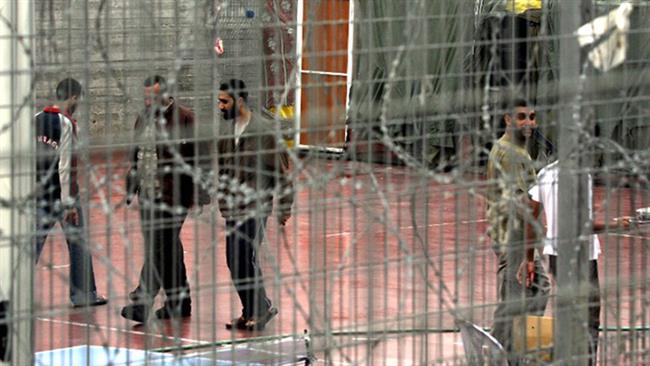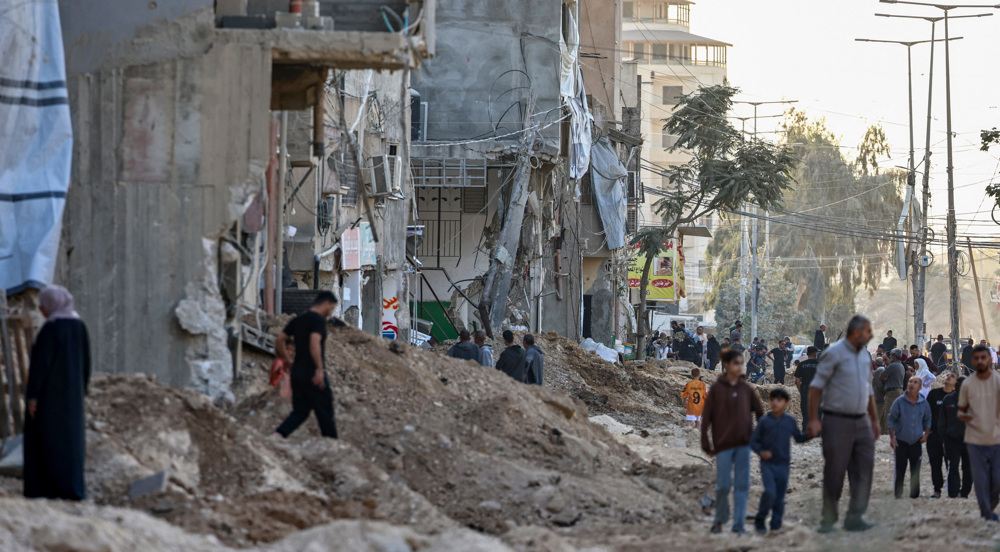Over 6,000 Palestinians currently held in Israeli prisons: NGOs
Israel is holding a total of 6,500 Palestinians, including women, children and lawmakers, in prisons and detention facilities across the occupied territories, three Palestinian non-governmental organizations say.
In a joint press released on Saturday, the Commission of Detainees and Ex-Detainees Affairs (CDA), the Palestinian Prisoners’ Society and the Palestinian Central Bureau of Statistics (PCBS) said 57 women and 300 children were among the detainees.
The statement noted that 500 inmates were being incarcerated under the practice of administrative detention, which is a policy under which Palestinian inmates are kept in Israeli detention facilities without trial or charge.
Some Palestinian prisoners have been held in administrative detention for up to 11 years.
The report comes as some 1,500 prisoners from all Palestinian political factions are planning to start an open-ended hunger strike on Monday, which marks Palestinian Prisoners’ Day, in protest at harsh prison conditions and restrictions on family visits.
The inmates seek better access to medical care, increased visit duration from 45 to 90 minutes, removal of glass barriers to allow mothers to hold their children, free entry of books, clothing, food and other gifts from family members into prisons and installation of phones to enable prisoners to stay in touch with their families.
They also want to be moved to prisons in the occupied West Bank as per the Fourth Geneva Convention, which would make it easier for their families to visit them.
On Thursday, the London-based prominent rights group Amnesty International called on the Tel Aviv regime to end “unlawful and cruel” policies towards Palestinian prisoners.
“Israel's ruthless policy of holding Palestinian prisoners arrested in the Occupied Palestinian Territories in prisons … is a flagrant violation of the Fourth Geneva Convention,” said Magdalena Mughrabi, Deputy Regional Director for the Middle East and North Africa at Amnesty International.
“It is unlawful and cruel and the consequences for the imprisoned person and their loved ones, who are often deprived from seeing them for months, and at times for years on end, can be devastating,” Mughrabi added.
2 more Israeli forces killed in N Gaza: Reports
Iran relies on natural gas for nearly 90% of its power production: Expert
US embassy in Beirut blocks Iraq-Lebanon humanitarian air bridge
VIDEO | UK's Starmer targets journalists
Israel plans to displace Palestinians in occupied West Bank: Hamas
Iranian airlines ramp up Istanbul route flights after EU sanctions
British protesters slam UK’s complicity in Gaza genocide on Balfour day
US surgeon haunted by Gaza children with ‘single gunshot wounds to head’















 This makes it easy to access the Press TV website
This makes it easy to access the Press TV website